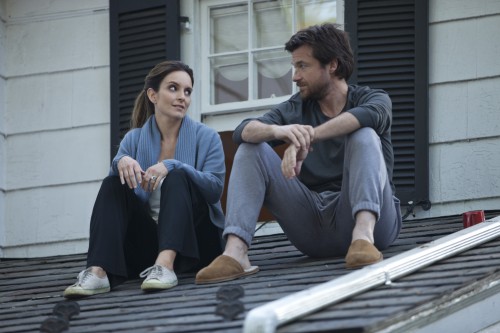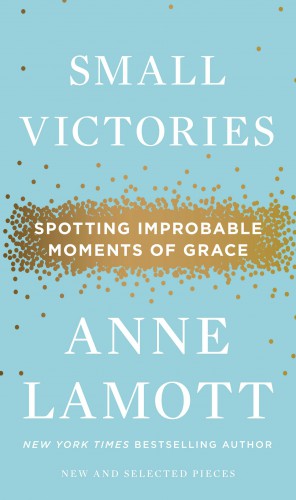

The church I attend is trying to reboot their “pastoral care ministry”, which is one of those amorphous seminary terms for something that could (and maybe should) mean more than it intends. Isn’t the job of a pastor to care? I got a little worried when I heard ours needed rebooting! I haven’t gone to seminary, but it doesn’t take long in a tour of church websites to see what is generally meant by pastoral care: hospital visits, home visits, prayer shawls, marriage counseling, baptisms, funerals. In other words, pastoral care has a lot to do with the church sharing in someone’s bouts of joy and grief. To be in some precious spaces with vulnerable people, and to help. Luther calls it the tending of souls (die Seelen weiden). If this is pastoral care, it is the heart of ministry. “Weep with those who weep, rejoice with those who rejoice.”
As many of us know, perhaps quite personally, what often goes wrong happens in the “help” part of this equation, mainly because of the index we use to insure the moment has been tended to. One or two things generally happen. One, the minister (I’m using this term broadly here) coats a painful–or beautiful–circumstance with a platitude or cliche, something that adds the whiff of a God-dimension to the room without actually waiting for God to say anything. Second–and this often happens because of the first–the door closes in the room. For whatever reason, whether it be the minister’s legitimate fear of the moment’s meaninglessness, or just lazy agitation with the emotions you don’t feel, the minister closes the door to what’s allowed. Feelings become encased in ought-to-feels, and the soul’s basement adds one more box of latent resentment and grief.
Enter the courageous Anne Lamott, the dreadlocked sufferer who’s been unpacking boxes, in narrative form, for the last thirty years, and has just released her most recent collection, Small Victories: Spotting Improbable Moments of Grace. Salon just did an interview with her about the new book, the reason so many of her stories have to do with suffering, and the state of her Match.com prospects as a cellulit 60-year-old. She talks about the fear we have, as both the recipients and companions of trauma, of dealing with that trauma. Aging helps, she says. You find you care a little less about how you ought to feel in certain situations. At the same time, she lays out an impeccable blueprint for what “pastoral care” ought to be about. And it begins with being a sufferer yourself.
Grief is just so scary. Our grief and rage just terrify us. If we finally begin to cry all those suppressed tears, they will surely wash us away like the Mississippi River. That’s what our parents told us. We got sent to our rooms for having huge feelings. In my family, if you cried or got angry, you didn’t get dinner.
We stuffed scary feelings down, and they made us insane. I think it is pretty universal, all this repression leading to violence and fundamentalism and self-loathing and addiction. All I know is that after 10 years of being sober, with huge support to express my pain and anger and shadow, the grief and tears didn’t wash me away. They gave me my life back! They cleansed me, baptized me, hydrated the earth at my feet. They brought me home, to me, to the truth of me.
 This book is quite a bit about aging — your aging, the aging of people around you. You’re 60 now. Is it what you thought it would be? What should I be warned about?
This book is quite a bit about aging — your aging, the aging of people around you. You’re 60 now. Is it what you thought it would be? What should I be warned about?
My grandson, who is 5, said to me the other day, “Nana, can I take a shower with you, if I promise not to laugh?”
Thanks, kid.
Sixty feels exactly like 50, with aching feet and more forgetfulness. (AAA had to come unlock my car this morning, as God is my witness.) But your inside person doesn’t age. Your inside person is soul, is heart, in the eternal now, the ageless, the old, the young, all the ages you’ve ever been.
However, having said that, I wish people had known more about sunscreen in the ’60s.
Is it my imagination, or do you know an awful lot of people who have cancer?
I have known a lot of people with cancer, because I live in the same county where I was born and raised. Then after my dad’s brain cancer, when it turned out I was willing to write truthfully about it, talk about it with people, people trusted me with their stories and fear and grief. Sometimes they asked if I would be there for someone in their family who trusted me, like in the story “Falling Better,” where I went skiing in Utah one Easter with a woman who died a month later — one of the greatest, funniest most life-giving experiences of my life. And yeah, very sad.
There’s a line in “Barn Raising” about our dear friends whose daughter got cystic fibrosis, when I offered them the gift of No Comfort — of not foisting happy spiritual horseshit on them, such as the idea that God never gives us more than we can shoulder. WHAT A CROCK. I know that a great blessing for people who are scared and sad is to have friends nearby, just sitting with them, walking their dog, being willing to feel like shit with them, and not have a lot of answers. That’s what I have to offer.
You’ve written over the years about a self-consciousness about your appearance — being a weird-looking kid, for instance, and being hyper-aware of weight as an adult. Does getting older ease that anxiety at all — or make it worse?
It gets infinitely better as you get older. You’ve lost your parents and some friends, and you feel so amazed and grateful that you still have the gift of life. You figure out that what your butt looks like is 143rd on the list of what is meaningful here, during our brief stay. You throw stuff out of the plane that keeps you flying too low. And yet; and yet. It’s still a struggle. I was so pretzel-ized by the culture’s institutionalized hatred of real women. I came up during the Jean Shrimpton years! I was doomed! And after I had a baby, things did not get higher and firmer. I forgot to go to the gym. (I’m kicking myself as we speak.) But you know what? I swim all summer in front of people, anywhere there is warm water — in front of my extended family, and strangers. (!) And me with terrible cellulite disorder — the Aunties — so this feels incredibly brave. So the healing is profound; AND I hate how long it takes to feel radical, militantly maternal self-acceptance.
…Here’s the thing — of course I still judge others harshly, and compare my insides to other people’s outsides, and go through jealousy and resentment; and get completely bitter. The difference is that with recovery and therapy, the grace of growing up, excavation of the scarier archaeological strata in my makeup, and an understanding of how deeply wounded I was as a child and teen, I might lash out internally at others. Then I realize I’m projecting some old fear or self-loathing onto a (sort of) innocent bystander. The realization usually comes now after a few hours — days at the most — instead of, say, my entire 20s.

COMMENTS
2 responses to “When the Grief Index Backfires”
Leave a Reply













This is SO GOOD. And I’ve been avoiding her for a while since her followups to Traveling Mercies were not my thing. THANKS for reminding me how much I heart Lady Lamott.
I don’t agree with Anne Lamott’s politics much, but I do love her honesty. It is so very healing!